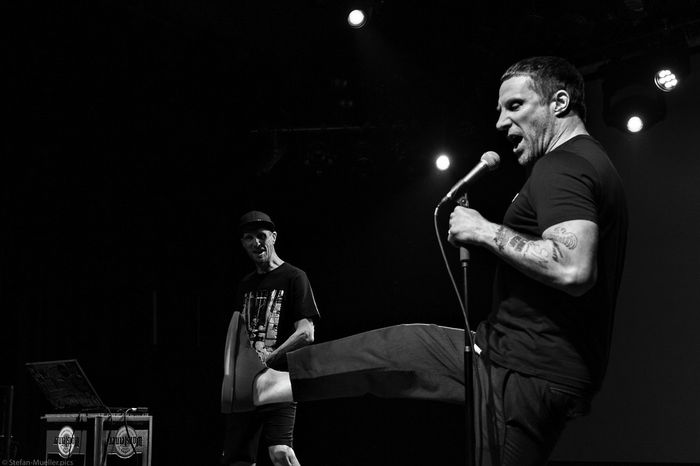Finding duende: Leonard Cohen and Federico García Lorca
Margaux Emmanuel examines the link between the singer-songwriter and the anti-fascist poet
One of my favourite Leonard Cohen lines is in “Chelsea Hotel #2” : “clenching your fist for the ones like us who are oppressed by the figures of beauty”. This line perfectly encapsulates Cohen’s poems as concentrates of beauty, with Cohen as a poet of genius sharing his fine perception of life – his works themselves are for us these “figures of beauty”, and yet do not “oppress us,” but leave us feeling moved, refreshed and pensive.
Leonard Cohen, the poet and songwriter who left us in 2016, wrote works of heightened emotionality – whether that be “Chelsea Hotel #2”, where he depicts with sincerity his relationship with Janis Joplin, the ethereal “Hallelujah,” the poignant “Leaving the table,” or the entrancing “Take this waltz.” Cohen’s works are dreamlike.
Cohen received the Asturias Prize for Literature in 2011, an occasion on which he spoke of the influence Spain has had on his work, “Everything you have found favourable in my work comes from this place. Everything that you have found favourable in my songs and my poetry are inspired by this soil.” He particularly underlined Federico García Lorca’s impact on his life and poetry, humourously saying that the Andalusian poet had “ruined his life.” In his speech at the Asturias Prize, he spoke of Lorca as granting him “permission to find a voice, to locate a voice, (...) to locate a self: a self that is not fixed, a self that struggles for its own existence.”
Lorca, a Spanish poet of the Generation of ’27, known for works such as ‘Gypsy Ballads’, ‘Blood Wedding’ and ‘A Poet in New York’, left for New York in 1929. Once he came back to Spain, disillusioned, he sided with the anti-fascist Republicans during the Spanish Civil War in 1936. His political stance, as well as his homosexuality, made him a target for the fascist militia, who murdered him in 1936 when he was 38.
“Once you read Lorca and Cohen side-by-side, the Spanish poet’s pervasion in the very fabric of his poetry and song-writing is undeniable”
Cohen, at the age of fifteen, was moved by the surrealism and magic of the Andalusian poet, an influence that would remain with him for the rest of his life, even naming his daughter “Lorca.” ‘This lorquiano’ influence is most palpable in “Take this Waltz,” a song from the 1988 I’m Your Man album and a translation from Lorca’s ‘Pequeño vals vienés’ (Little Viennese Waltz), which took him more than 100 hours to translate. This translation is an overt act of tribute and yet, more generally, once you read Lorca and Cohen side-by-side, the Spanish poet’s pervasion in the very fabric of his poetry and song-writing is undeniable.
The emotional strength and sincerity of Cohen’s works can be related to Lorca’s ‘duende’ aesthetics, theorized by Lorca at a lecture in Buenos Aires in 1933, ‘Juego y teoría del duende’ (‘Theory and Play of the Duende’). The figure of the ‘duende’ itself, the word stemming from ‘dueño de la casa’ and also referring to a magical creature, is explained as being ‘not a labour, a struggle not a thought…. the duende is not in the throat: the duende surges up, inside, from the soles of the feet… it’s not a question of skill, but of a style that’s truly alive: meaning, it’s in the veins: meaning, it’s of the most ancient culture of immediate creation.’ Even though Lorca uses examples of it stemming from idiosyncratically Spanish cultural aspects, such as Spanish dance, the feeling of ‘duende’ is couched as a universal reaction to the “figures of beauty.” When speaking of duende, Lorca speaks of Goethe, Bach, Brahms…

This sensibility is deeply anchored in Cohen’s works. Whether in the solitude and vulnerability of New Skin for Old Ceremony, or the classic Songs of Leonard Cohen, Cohen investigates the very threads that constitute human emotion.
There is also a moribund aspect to duende, as Lorca writes in his 1933 theory: “moribund duende sweeping the earth with its wings made of rusty knives”, an awareness of mortality, that can be discerned in his later album You Want it Darker, raw and grim, punctuated with lines such as “I’m leaving the table/ I’m out of the game”, “It’s au revoir,” his voice at the centre, both a sigh and a prayer, which is what this duende’s “dark sound” explores. Leonard Cohen, being Jewish, sang “Hallelujah” as a universal plea that transcends religion and speaks to a core spirituality in us all – we all have our own hallelujahs.
Duende is a mode of understanding and creation that is deeply rooted within Cohen’s works – it is not simply a sensitivity and particularly eloquent turn of phrase, but a soulful resonance that evades definition: it must be lived, as Cohen and Lorca’s works makes us live hundreds of different lives through their poetry.
 News / Downing investigates ‘mysterious’ underground burial vault 29 December 2025
News / Downing investigates ‘mysterious’ underground burial vault 29 December 2025 News / Unions protest handling of redundancies at Epidemiology Unit30 December 2025
News / Unions protest handling of redundancies at Epidemiology Unit30 December 2025 Lifestyle / Ask Auntie Alice29 December 2025
Lifestyle / Ask Auntie Alice29 December 2025 Features / ‘Treated like we’re incompetent’: ents officers on college micromanagement30 December 2025
Features / ‘Treated like we’re incompetent’: ents officers on college micromanagement30 December 2025 Science / Astronomical events to look out for over the break29 December 2025
Science / Astronomical events to look out for over the break29 December 2025










